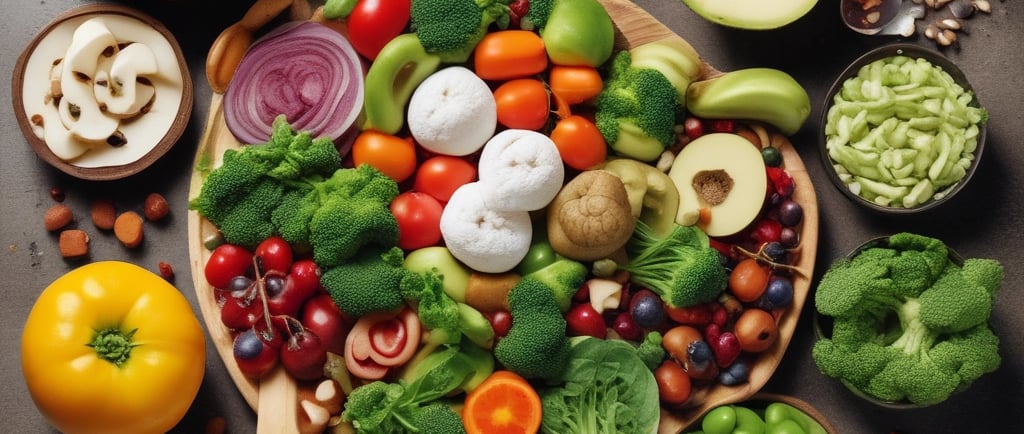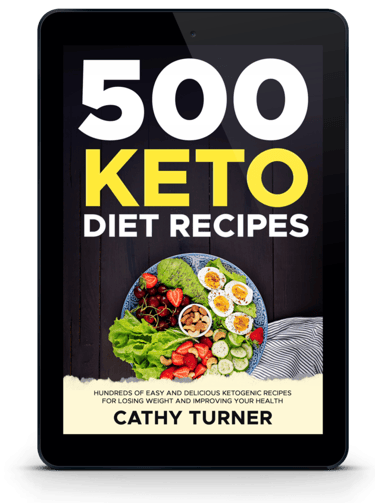Ultimate Guide to a Healthy Vegetarian Diet Plan for Weight Loss
Discover the Ultimate Guide to a Healthy Diet Plan for Weight Loss! Learn expert tips, meal plans, and nutrition hacks to burn fat & stay fit naturally.
WEIGHT LOSSHEALTHY DIET
2/17/20255 min read


A vegetarian diet is a dietary practice that excludes meat, and it comes in various forms, each with its own unique characteristics. The main types of vegetarian diets include lacto-vegetarian, ovo-vegetarian, lacto-ovo vegetarian, and vegan. Lacto-ovo vegetarians, the most common type, incorporate both dairy and eggs into their diet. On the other hand, vegans abstain from all animal-derived foods, focusing solely on plant-based options.
The significance of adopting a vegetarian diet extends beyond personal preferences; it plays a crucial role in weight loss and overall health. Research indicates that vegetarian diets are often lower in calories and higher in dietary fiber compared to meat-based diets. This higher fiber content aids digestion, enhances satiety, and helps regulate blood sugar levels, which can be beneficial for those seeking to manage their weight. Moreover, plant-based diets are rich in essential nutrients, including vitamins, minerals, and antioxidants, which are pivotal for maintaining good health.
One of the notable health benefits associated with vegetarianism is improved heart health. Many studies suggest that individuals following a vegetarian diet have lower cholesterol levels and reduced blood pressure, both of which contribute to a lower risk of cardiovascular diseases. Additionally, incorporating more fruits, vegetables, legumes, and whole grains into one's diet supports a healthy gut microbiome, which can lead to better digestion and enhanced nutrient absorption.
Plant-based foods also play a central role in weight management, as they tend to be lower in unhealthy fats and calories while being nutrient-dense. Adopting such a diet can foster a sustainable lifestyle, promoting not only personal health benefits but also positive environmental impacts. By prioritizing vegetarian options, individuals can contribute to lower greenhouse gas emissions and reduced resource consumption.
Crafting a Balanced Vegetarian Meal Plan
Creating a balanced vegetarian meal plan tailored for weight loss is essential to achieving desired health outcomes while ensuring adequate nutrition. A well-structured meal plan should incorporate various food groups, offering both versatility and essential nutrients necessary for energy and overall well-being.
When designing a vegetarian meal plan, it is crucial to include a mix of fruits, vegetables, legumes, whole grains, and healthy fats. Fruits and vegetables should form the foundation of each meal, providing vitamins, minerals, and antioxidants that support immune function and overall health. Legumes, such as beans and lentils, are excellent sources of plant-based proteins and fiber, contributing to satiety and aiding digestion.
Whole grains, such as quinoa, brown rice, and oats, deliver complex carbohydrates, providing sustained energy throughout the day. The inclusion of healthy fats, found in foods like avocados, nuts, and olive oil, is equally important; these fats support cognitive function and help the body absorb fat-soluble vitamins. Balancing macronutrients—proteins, fats, and carbohydrates—ensures that the body receives a sufficient and varied diet to maintain optimal metabolic function.
Portion sizes and meal frequency are critical considerations. Aim for smaller, more frequent meals throughout the day to keep metabolism active and prevent excessive hunger. Utilizing measuring tools or visual aids can assist in determining appropriate portion sizes, ensuring that caloric intake aligns with weight loss goals without compromising nutritional quality.
For practical application, consider implementing a sample weekly meal plan that emphasizes nutrient density, focusing on low-calorie, high-fiber foods. Examples could include overnight oats with berries for breakfast, a mixed bean salad for lunch, and a stir-fry of vegetables with tofu for dinner. Incorporating a variety of flavors and colors in your meals will enhance enjoyment and adherence to your vegetarian lifestyle, promoting long-term weight loss success.
Healthy Snacking and Managing Cravings
Incorporating healthy snacks into a vegetarian weight loss plan is essential for managing cravings and maintaining energy levels throughout the day. Snacks should not only satisfy hunger but also provide vital nutrients that align with weight loss goals. Focusing on whole, minimally processed foods can aid in making healthier choices. Nuts and seeds, for instance, are excellent sources of protein and healthy fats, making them ideal snacks that promote satiety and reduce the likelihood of overeating during meals.
Fruits and vegetables are another cornerstone of a healthy vegetarian snacking strategy. Fresh fruit, such as apple slices with nut butter or a bowl of mixed berries, can curb sweet cravings while delivering essential vitamins and nutrients. Similarly, crunchy vegetable sticks paired with hummus present a nutritious and satisfying option that is low in calories yet rich in fiber. The fiber content in these snacks can contribute to feeling full, thereby helping to manage appetite more effectively.
Mindful eating techniques play a crucial role in differentiating between physical hunger and emotional cravings. Practicing mindfulness involves being present during snack times, paying attention to hunger cues, and savoring each bite. This can prevent impulsive snacking caused by boredom, stress, or other emotional triggers. By tuning in to their body’s signals, individuals can make more informed decisions about when and what to eat.
Practical snack ideas include yogurt with granola and fresh fruit, homemade energy bites made from oats and nut butter, or roasted chickpeas, which are both delicious and healthful. Experimenting with different combinations can add variety while keeping the focus on nutrition. By selecting snacks that are satisfying, nutritious, and aligned with one's dietary preferences, successful weight loss can be achieved without the deprivation often associated with restrictive diets.
Staying Motivated and Tracking Progress
Maintaining a vegetarian diet for weight loss requires not only a commitment to healthier eating habits but also psychological resilience. To effectively manage this journey, setting achievable goals is paramount. Start with specific, measurable objectives, such as incorporating a certain number of fruits and vegetables into daily meals or reducing processed food intake. These small, attainable targets can help in avoiding feelings of overwhelm and can pave the way for more extensive dietary changes over time.
Tracking dietary habits plays a vital role in maintaining motivation. Keeping a food journal is an effective method for documenting daily meals and snacks while providing clear insight into eating patterns. Alternatively, various mobile applications are available that allow users to log nutrient intake, monitor progress, and set reminders for meals. By utilizing these tools, individuals can gain a better understanding of their nutritional choices, making it easier to adjust their diet as needed to align with their weight loss goals.
As the journey progresses, celebrating milestones—no matter how small—is essential for staying motivated. Reinforcing positive behaviors with rewards can encourage continued effort and adherence to the vegetarian diet. Additionally, engaging with success stories from others who have achieved similar goals can serve as valuable inspiration. Connecting with like-minded individuals through online forums or community groups focused on vegetarianism and healthy living can provide not only motivation but also a sense of accountability.
Ultimately, the journey toward maintaining a vegetarian diet for weight loss can be significantly enriched by building a supportive community. Whether it involves sharing recipes, discussing challenges, or celebrating wins, these interactions foster an environment where individuals feel understood and encouraged. Embrace this collective spirit by joining online platforms where experiences and knowledge about vegetarian diets can be exchanged, leading to a more fulfilling and effective weight loss journey.
Lose Weight the Smart Way: Proven Programs for Fast Fat Loss!
1. Vegan & Plant-Based Diet Programs:
The Plant-Based Recipe Cookbook – A collection of delicious vegan recipes to help people transition to plant-based eating.
Vegan Bodybuilding & Fitness Guide – A program designed for those looking to build muscle on a vegan diet.
2. Weight Loss & Fat Burning Programs:
Smoothie Diet 21-Day Program – A high-converting diet plan based on nutrient-rich smoothies for rapid weight loss.
Custom Keto Diet – While it's keto-focused, many people transition from keto to plant-based low-carb diets, making it a good cross-sell.
3. Digital Meal Planners & Trackers:
Fat Burning Kitchen – A program that teaches users how to eat clean and burn fat naturally.
Metabolic Cooking – A fat-loss cookbook with easy, metabolism-boosting recipes.


